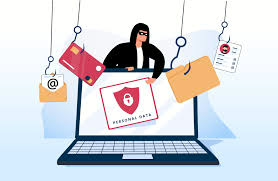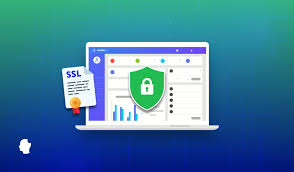In an age where mobile devices hold a treasure trove of sensitive data, ensuring their security has never been more critical. To help you fortify your mobile device’s defences, we’ve compiled some essential tips.
First and foremost, always lock your device. Utilising the keypad lock or phone lock function is a simple yet effective way to prevent unauthorised access. When your phone is not in use, securing it ensures that no one can view your messages, photos, or sensitive information. Additionally, when you’re not actively using your device, make it a habit to store it in a secure location, minimising the risk of theft or misuse.

Moreover, take full advantage of your mobile phone’s built-in security features. Enable encryption to protect your data from prying eyes, and activate remote wipe capabilities to erase your information if your device is ever lost or stolen. These features can be invaluable in maintaining your privacy.
Consider supplementing your device’s security with reputable antivirus software designed for mobile platforms. Such applications can provide an extra layer of protection against malware and other threats that could compromise your data. For specific instructions on enabling these features, consult your phone’s user manual or contact your mobile provider for assistance.
By following these recommendations, you can significantly enhance the security of your mobile device and protect your personal information from potential threats. Your safety is our priority, and together, we can ensure it remains intact.
In our increasingly digital world, it is essential to be vigilant about the messages we receive. One of the most crucial rules to follow is to never click on links found in suspicious emails or text messages. These links can lead you to harmful websites designed to install malicious software on your device, putting your personal information at risk.

Always remember that legitimate banks and financial institutions will never ask for sensitive information, such as passwords or account details, via email or text. If you receive a message claiming to be from your bank requesting such information, it is likely a phishing attempt. It’s best to contact your bank directly through official channels to verify any requests.
Additionally, consider limiting the exposure of your mobile phone number. Avoid posting it on public websites whenever possible. Cybercriminals often deploy software that scours the internet for phone numbers, which they can then use to launch targeted attacks.
By taking these precautions, you can significantly reduce your risk of falling victim to scams and protect your sensitive information. Always stay alert and prioritise your digital safety.
In the age of smartphones, convenience often comes at a price. Imagine for a moment that you’re out and about, your mobile device securely tucked away in your pocket. But what if an unauthorised party gains access to it? The consequences could be dire if sensitive information like passwords or bank account numbers is stored on that very device.
Picture yourself regularly scrolling through your browser history, glancing at old text messages, and sifting through files. These seemingly harmless actions can leave traces of personal data that might fall into the wrong hands. It’s wise to make it a habit to delete this information frequently, safeguarding your privacy.
Now, let’s talk about apps. The allure of a new application can be tempting, but caution is key. Always download apps from reputable sources, like your device’s official app store. By doing so, you significantly reduce the risk of inadvertently installing malware or malicious code that could jeopardise your security. Remember, a little vigilance today can save you from potential headaches tomorrow.
In the ever-evolving cybersecurity landscape, proactive measures to protect your devices are crucial. One effective strategy is to disable any interfaces that you aren’t actively using, such as Bluetooth, infrared, and Wi-Fi. These seemingly innocuous features can serve as gateways for attackers looking to exploit software vulnerabilities.

Imagine your Bluetooth-enabled device glowing invitingly in a café. When set to discoverable mode, it becomes an open book for anyone nearby, including potential cyber attackers. To enhance your security, switch your device to non-discoverable mode. This simple action cloaks your device from prying eyes, making it much harder for malicious actors to connect without your consent.
Furthermore, be wary of joining unknown Wi-Fi networks. Public hotspots can be enticing, but they often lack the security necessary to protect your sensitive information. A seemingly harmless connection could lead you down a path of compromised data and privacy breaches. Always think twice before clicking “join” on those unfamiliar networks; your digital safety may depend on it.
In today’s digital age, the allure of free Wi-Fi can be tempting, but it often comes with hidden dangers. Picture yourself in a bustling café, your phone buzzing with notifications. You see an open Wi-Fi network and think, “Why not?” Yet, lurking in the shadows could be a cunning attacker, crafting fake hotspots to ensnare unsuspecting users. These deceptive networks can compromise your data and privacy as hackers monitor connections for unsecured devices.
As you sip your coffee, remember that your mobile device holds a treasure trove of personal information. When it’s time to part ways with an old phone, don’t simply toss it aside. Before discarding it, take the necessary steps to erase all stored data. This isn’t just about deleting apps or photos; it involves securely wiping the entire device.

To ensure you’re doing it right, visit the manufacturer’s website for guidance on how to erase your data altogether. Your mobile phone provider may also offer valuable resources on this process. Lastly, as you scroll through social media, be mindful of the information you share. Every post could potentially expose you to risks if not handled carefully. Protecting your digital life requires vigilance and awareness at every turn.
In today’s digital landscape, social networking applications have become an integral part of our lives. However, it’s crucial to tread carefully when using these platforms. Every post, photo, or check-in can potentially expose more personal information than you might intend. You might think you’re sharing a harmless moment with friends, but that same post could reach unintended audiences, putting your privacy at risk.
Location-tracking services are particularly concerning. While they can enhance your experience by connecting you with nearby friends or events, they can also reveal your whereabouts to those who shouldn’t have access. Always double-check your privacy settings and think twice before sharing your location.

Another risky maneuver is “jailbreaking” or “rooting” your device. This process involves removing the restrictions imposed by manufacturers like Apple or Android, allowing you to customise your phone. But beware: this alteration opens the door to security vulnerabilities, making your device susceptible to malware. Additionally, jailbreaking can prevent your device from receiving essential updates that protect against emerging threats.

Lastly, if you engage in text banking or sensitive conversations through messaging apps, remember to delete those chats regularly. Sensitive information should never linger longer than necessary, as it could fall into the wrong hands. Stay vigilant and protect your digital footprint—your privacy is worth the effort.
In the digital age, protecting your financial information is more crucial than ever. One simple yet effective practice is to delete text banking conversations routinely. Whenever you receive messages from your bank, especially those containing sensitive account details, it’s essential to erase them promptly. Remember, Bluestone takes your security seriously and never sends your whole account number via text, but it’s still wise to err on the side of caution.
Next, take a moment to add your bank’s shortcode to your contacts. This small step ensures that any future text requests will be initiated from a safe, recognised source rather than from past conversations that may linger in your messaging app. By doing so, you minimise the risk of falling prey to phishing scams disguised as legitimate communications.
Moreover, when managing your online accounts, always look for options to configure secure connections. Many websites offer settings that enable HTTPS or SSL encryption. This feature creates a protective barrier against potential attackers who might attempt to intercept your data during web sessions.

When you access your bank’s mobile banking site, rest assured that the connection is secure and encrypted. Taking these proactive measures will not only safeguard your information but also provide you with peace of mind as you navigate the world of online banking. Always remember that in today’s interconnected environment, vigilance is key to maintaining your financial security.
Imagine the sinking feeling as you reach for your mobile phone, only to discover it’s gone. Whether it slipped from your pocket during a busy day or was snatched while you were out and about, losing your phone can be alarming.
The first step is crucial: remove the device from mobile banking access. This safeguard protects your financial information from potential misuse.
Next, pick up the phone—if you still have another device handy—and dial 800.356.8622 to reach your bank’s customer service. Speak with a representative who can help secure your accounts and prevent unauthorised transactions.
Remember to inform your organization or employer if the phone was issued to you or contains sensitive data. They need to know about the breach immediately to take appropriate action.
Lastly, contact your mobile service provider. Reporting the loss ensures they can suspend your service, prevent any unwanted charges, and further secure your personal information.
Taking these steps promptly can help mitigate the risks and give you peace of mind in a troubling situation.
When you realise that your mobile phone is missing or has been stolen, the first step is to report the incident to local authorities. Depending on the circumstances, it may be necessary to inform both relevant staff at your workplace and the local police. This not only helps in recovering your device but also protects others from potential misuse.

As you gather information for the report, make sure to note down essential details about your phone. Record its make, model, phone number, and serial number. This information will be crucial when communicating with your phone carrier or law enforcement, as they may require it for tracking purposes or to file a report.
Once you’ve taken these steps, turn your attention to securing your accounts. If your phone provides access to sensitive resources—such as corporate networks or social media platforms—it’s vital to change all associated credentials. Reach out to your IT department if needed; they can assist in revoking any issued certificates linked to your lost device.
Additionally, log onto websites where you’ve saved passwords and promptly update them. Taking these proactive measures will help safeguard your personal and professional information from falling into the wrong hands.
In a world where smartphones hold vast amounts of personal information, the thought of losing one can be daunting. Imagine this: you’re out and about when you realize your phone is missing. Panic sets in as you recall the sensitive data stored within—photos, messages, and perhaps even banking information.
If necessary, wiping the phone becomes a crucial step. Fortunately, many mobile service providers offer a lifeline in such situations: remote wiping. This feature enables you—or your provider—to erase all data from your phone, safeguarding your privacy.
The process is simple yet effective. With just a few clicks from another device, you can send a signal to your lost phone, initiating a complete wipe of its contents. It’s as if you’re pressing a reset button on your life, ensuring that no one can access your personal information.
As the finality of the action sinks in, there’s a bittersweet relief. You may have lost a device, but you’ve preserved your privacy and security. In an age where technology connects us so closely, knowing how to protect ourselves is paramount.

Maxthon
Maxthon stands at the threshold of transforming the landscape of cloud gaming with its pioneering browser, meticulously crafted for the gaming community. At its foundation lies a complex array of algorithms designed to elevate speed and performance to new heights, creating an atmosphere where gameplay can truly shine. These cutting-edge technologies harmoniously collaborate to produce stunning visuals while effectively eradicating any lag that could hinder the gaming experience. For those gamers in pursuit of an all-encompassing adventure, this seamless integration is not just a bonus; it is a fundamental aspect of what makes the experience exceptional.
Yet, Maxthon’s allure extends far beyond merely captivating graphics. The browser utilises advanced data management strategies that dramatically cut down loading times between levels or game modes. This advancement allows players to plunge straight into the action without the irritation of tedious delays, enabling them to savour every exhilarating moment of their gaming journey.

In addition to its impressive speed and visual fidelity, Maxthon strongly emphasises reliable connectivity. Gamers can count on a stable connection with minimal disruptions, whether they are embarking on solo quests or joining friends for online battles. This dedication to ensuring robust connections greatly enhances the overall enjoyment of the gaming experience.
One of the most remarkable aspects of Maxthon is its ability to function seamlessly across a wide range of devices. Be it a smartphone, tablet, or desktop computer, accessing your beloved games has never been easier; gone are the days when you were confined to a single console. This adaptability introduces a new level of convenience to your gaming routine. Picture yourself settling into your favourite chair after a long day, effortlessly picking up right where you left off with just a few taps on your device—this illustrates the brilliance of cross-device functionality.
Moreover, nestled among these impressive features is Maxthon’s user interface, which plays a pivotal role in enriching the overall experience. With its intuitive design, navigating through various options becomes second nature, allowing users to focus on what truly matters: enjoying their games to the fullest. Through its comprehensive approach to gaming, Maxthon is poised to redefine how players engage with their favourite titles in a world increasingly dominated by cloud technology.
